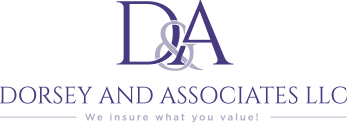Homeowners often find themselves caught off guard by the complexities of property line disputes and the accompanying insurance concerns. The stress of unexpected damages, such as a tree falling from a neighbor's yard, fires, or even flooding, can quickly become overwhelming. That's why understanding your insurance coverage and responsibilities is crucial to ensuring financial peace of mind. In this article, we'll delve into common questions homeowners have about insurance policies concerning property boundaries.
Fire Damage from a Neighbor's Property
It's a relief to know that homeowners insurance typically covers fire damage that spreads from a nearby property. However, if the fire results from negligence, such as an unattended candle or faulty wiring, your insurance provider may pursue reimbursement from the responsible neighbor's insurance policy.
Tree Damage Responsibility
If a neighbor's tree falls onto your home due to a storm, your own insurance usually covers the damage. However, if the tree was dead or in poor condition and the neighbor knew about this risk, their insurance might be liable instead.
Flooding from a Neighbor’s Property
Water damage caused by poor drainage, malfunctioning downspouts, or landscape changes on a neighbor’s property can be difficult to navigate. Proving negligence in these cases is often challenging. Moreover, standard homeowners insurance doesn’t cover flooding, so it's advisable to consider a separate flood insurance policy for comprehensive protection.
Shared Fence Repair Costs
When a shared fence is damaged in a storm, it's customary for both property owners to split the repair costs. Nonetheless, if damage results from direct actions by one homeowner, such as negligence, that homeowner may need to cover the full repair expenses.
The Insurance Claims Process
Insurance claims involving a neighbor’s actions can be intricate. Insurers handle these claims with a process called subrogation, where they may seek reimbursement from the responsible neighbor’s insurance if negligence is proven. If negligence can't be established, your policy generally covers the damages without involving the neighbor's insurance.
In conclusion, it’s important to regularly review your insurance policies and contemplate additional coverage needs, such as flood insurance, for enhanced protection. For complete peace of mind, consider consulting an insurance professional to clarify the details of your coverage.

